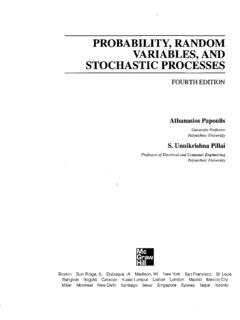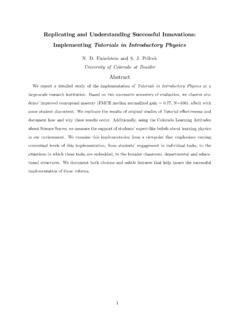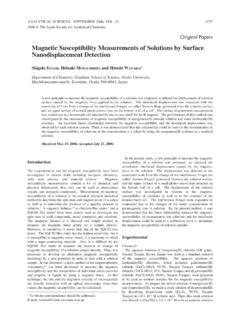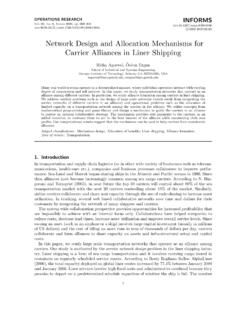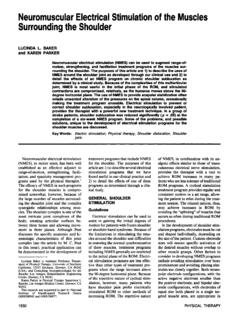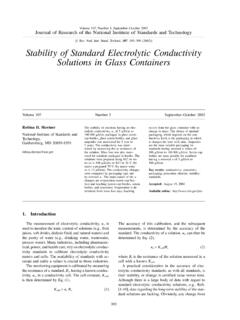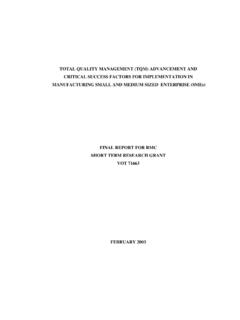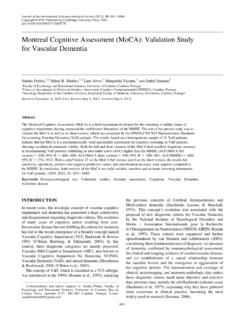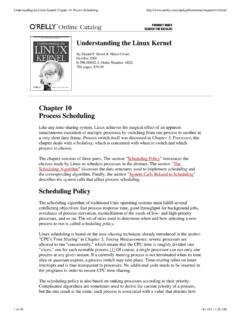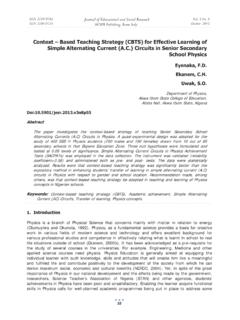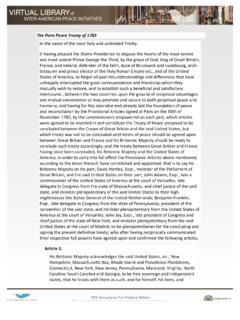Transcription of Puritanism and Its Impact upon American Values
1 Vol. 1, No. 2 Review of European Studies Puritanism and Its Impact upon American Values Ning Kang School of Foreign Languages, Qingdao University of Science and Technology 69 Songling Lu, Qingdao 266061, China Tel: 86-532-8895-8959 E-mail: Abstract American Puritanism originated from a movement for reform in the Church of England, which had a profound influence on social, political, ethical, and theological ideas of the Americans. Focusing on its Impact upon American Values , the present paper first discusses the origin and the tenets of Puritanism . The forming of American individualism and democratic thoughts were, obviously, influenced by Puritanism in New England. It also shaped American people's national character of being hard-working and thrifty, and made them bear a strong sense of mission.
2 Moreover, Puritanism rendered Americans devoted to popular education. Keywords: Puritanism , Puritans, New England, American Values 1. The Origin of American Puritanism and Its development in America Originally, Puritanism refers to a movement that arose within the Church of England in the latter part of the 16th century. It sought to purify, or reform the Church and establish a middle course between Roman Catholicism and the ideas of the Protestant reformers. Those who advocated Puritanism were called Puritans. In England of the 16th century, the Puritans were the more extreme Protestants within the Church. They thought that the religious reformation in England had not gone far enough in reforming the doctrines and structure of the church.
3 They wanted to purify their national church by eliminating every shred of Catholic influence. After James I became king of England in 1603, English Puritan leaders asked him to grant more reforms, including abolition of bishops. However, he rejected most of their proposals. Moreover, the English government and the church hierarchy became increasingly repressive. Many Puritans were persecuted and had to emigrate to Europe and the New World. Early in the 17th century Puritanism reached North America with English Puritans who were usually referred to as the English Pilgrims. In 1620 they founded Plymouth Colony. Afterwards more Puritans emigrated and they built more colonies, including Massachusetts (1628), New hampshire (1629), Connecticut (1633), Maine (1635), Rhode Island (1636), and New Haven (1638).
4 The Puritans brought strong religious beliefs to bear in all colonies north of Virginia. New England became their stronghold, where they sought to found a holy Commonwealth. Puritanism remained the dominant religious force in that area throughout the 17th and 18th centuries. During the whole colonial period Puritanism had direct Impact on both religious thought and cultural patterns in America. By 1640 some 35 churches had been established in New England. The Puritans there maintained the Calvinist distinction between the elect and the damned in their theory of the church, in which membership consisted only of the regenerate minority who publicly confessed their experience of conversion. Ministers had great political influence, and civil authorities exercised a large measure of control over church affairs.
5 In 1662 it was made easier for the unregenerate majority to become church members in Massachusetts by the adoption of the Half-Way Covenant. Clerical power was lessened by the expansion of New England and the opening of frontier settlements filled with colonists who were resourceful, secular, and engaged in a struggle to adapt to a difficult environment. In 1692 in Massachusetts a new charter expressed the change from a theocratic to a political, secular state;. suffrage was stripped of religious qualifications. After the 17th century the Puritans as a political entity largely disappeared, but Puritan attitudes and ethics continued to exert an influence on American society. They made a virtue of qualities that made for economic success self-reliance, frugality, industry, and energy and through them influenced modern social and economic life.
6 (The Columbia Encyclopedia, Sixth Edition, 2007: 39583)Their concern for education was important in the development of the United 148. Review of European Studies December, 2009. States, and the idea of congregational democratic church government was carried into the political life of the state as a source of modern democracy. 2. The Tenets of American Puritanism Generally speaking, key puritan beliefs and Values include: A. Godly people were sober, hardworking, and responsible. English society had been corrupted by foreign influences and by disorder and needed to be purified. B. Catholicism had undermined the relationship between God and the individual C. Election & predestination God chooses who is saved and who is damned.
7 No one can earn salvation through works. Yet the saints are responsible for their actions. D. The congregation of saints chooses its members, hires and fires its ministers, and recognizes no other religious authority. E. Worship should be plain, lack mystery, and be focused on God, No stained glass, instrumental music, or art. F. Much value of education G. Intolerance error must be opposed and driven out (Feldmeth, Greg D. American Puritanism , History Resources. <http:// >. Revised 21 June 2004). The central tenet of Puritanism was God's supreme authority over human affairs in the church, as expressed in the Bible. So they tried hard to seek both individual and corporate conformance to the teaching of the Bible, and pursue both moral purity and ecclesiastical purity.
8 The belief in predestination differentiated Puritans from other Christians. To Puritans, belief in Jesus and participation in the sacraments could not alone fulfill one's salvation; one cannot choose salvation, because that is the privilege of God alone. All features of salvation are determined by God's sovereignty, including choosing those who will be saved and those who will receive God's irresistible grace. To the Puritans, a person by nature was inherently sinful and corrupt, and only by severe and unremitting discipline could they achieve good. Each person should be constantly reformed by the grace of God to combat the indwelling sin and do the right before God. Thus, they considered hard work a religious duty and laid emphasis on constant self-examination and self-discipline.
9 They believed that man was duty-bound to do God's will, so he could understand best by studying the Bible and the universe which God had created and which he controlled. Puritans advocated a humble and obedient life. They also emphasized private study of the Bible. They believed everyone is the priest for themselves. Alexis de Tocqueville (1998) suggested in Democracy in America that the English Pilgrims were hard-working, egalitarian, and studious, and they provided a firm foundation for American democracy. Besides, Puritan theology and social relationships are filled with the concept of a covenant or contract between God and his elect. There are several types of covenants which are central to Puritan thought: the Covenant of Works, Covenant of Grace, and Covenant of Redemption.
10 3. The Impact upon American Values Puritanism is not only a religious belief, but a philosophy, a combination of life styles with living Values . It has exerted great influence on American culture, and shaped the national characters of American people. Many of the mainstream Values in the such as individualism, egalitarianism, optimism, can find their origin in Puritanism of colonial periods. Puritanism lays foundation for American Individualism As is known, individualism is the core of American Values . It is rooted deeply in early American Puritanism . Nowadays, the value of individualism has permeated every corner of American society. It places great value on self-reliance, on privacy, and on mutual respect.
